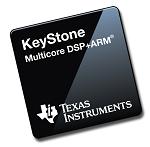Checkout our website for prospective students.
New Faculty: Prof. Jenay Beer
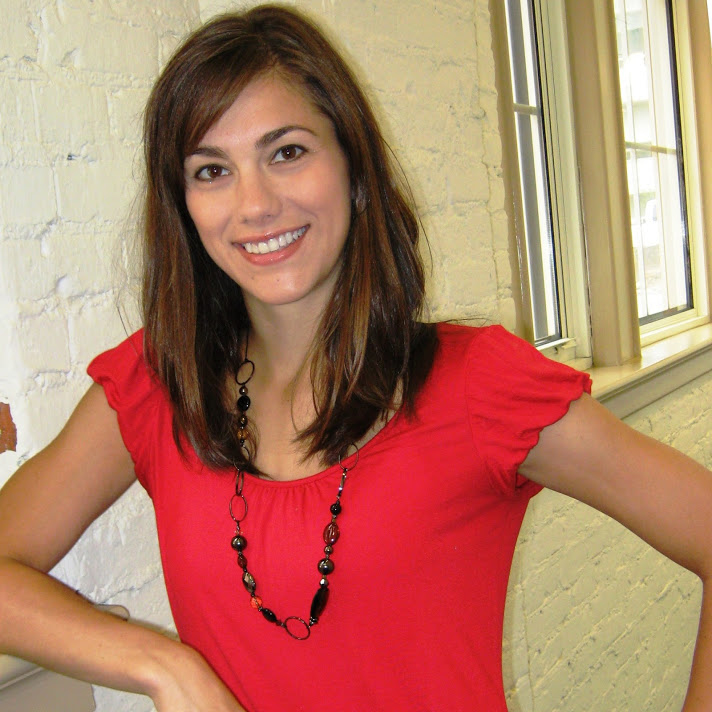 We would like to welcome our newest assistant professor Dr. Jenay Beer to the department. She comes to us from Georgia Tech where she worked in the Human Factors and Aging Laboratory and received both PhD and Master's degrees in Engineering Psychology. She is interested in human-robot interactions and how to to build robots that can help older adults. Her office is 3A58. Below is a video of her TEDx talk at Georgia Tech.
We would like to welcome our newest assistant professor Dr. Jenay Beer to the department. She comes to us from Georgia Tech where she worked in the Human Factors and Aging Laboratory and received both PhD and Master's degrees in Engineering Psychology. She is interested in human-robot interactions and how to to build robots that can help older adults. Her office is 3A58. Below is a video of her TEDx talk at Georgia Tech.
Security Risks in Heart Devices
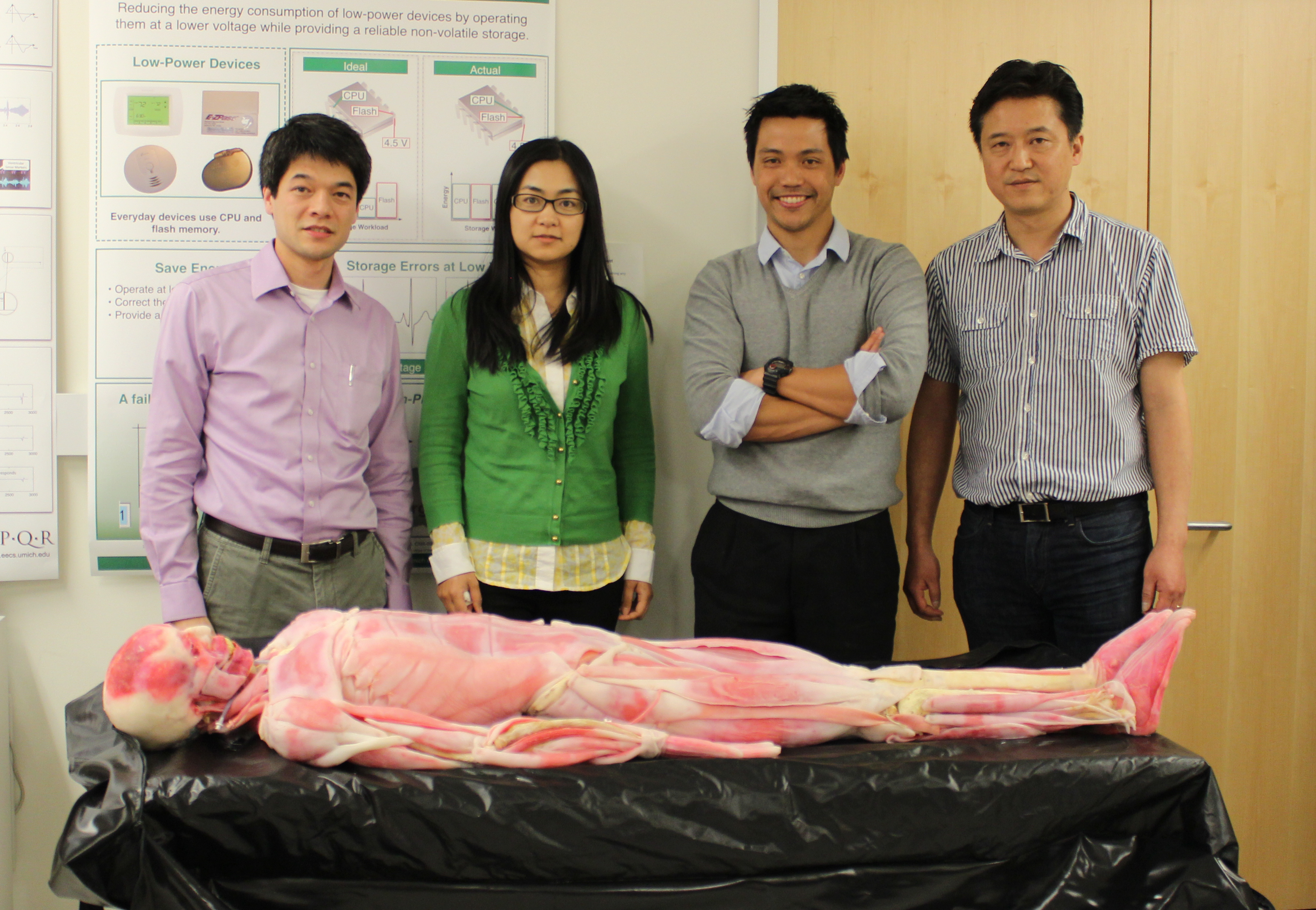 Dr Xu and her research team have discovered security vulnerabilities in the sensors of cardiac defibrillators and pacemakers. She explains:
Dr Xu and her research team have discovered security vulnerabilities in the sensors of cardiac defibrillators and pacemakers. She explains:
As researchers, it's our responsibility to always challenge the common practice and find defenses for vulnerabilities that could be exploited before unfortunate incidents happen. We hope our research findings can help to enhance the security of sensing systems that will emerge for years to come.You can read the full story at our College website: Security risks found in sensors for heart devices. You can also watch a the video report that appeared on WISTV.

Grubbly: Find Local Food Deals
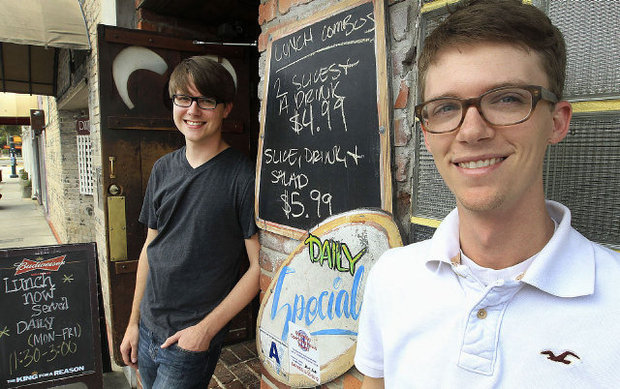 Jason Rikard and Jonathan Mayhak, two recent graduates from this department, have just released Grubbly, a website and iphone app (Android coming soon) where you can find local food specials. Currently it only covers Columbia but plans are to expand to nearby cities. The app is featured in the State Newspaper. Also, check out their blog.
Jason Rikard and Jonathan Mayhak, two recent graduates from this department, have just released Grubbly, a website and iphone app (Android coming soon) where you can find local food specials. Currently it only covers Columbia but plans are to expand to nearby cities. The app is featured in the State Newspaper. Also, check out their blog.
For the moment, grubbly.com is not a money-maker. Mayhak and Rikard glean specials from the Internet or by personal experience. They often just snap pictures of specials boards with their iPhones to be logged in later. “We go out a lot,” Rikard said. The app is more of a showpiece for their freelance programming startup Apparctica, they said. And perhaps, once the two can figure out a way to quantify how much traffic they are driving to restaurants (without the use of coupons), they can institute a small monthly fee. In the meantime, they are kicking around ways to build grubbly by communicating such things as the vibe of the room, the character of the clientele, the décor, the architecture – taking it to the next level. “Information about how cool it looks and the people who are there,” said Mayhak. “Not just an aggregate of information,” Rikard said.
Magellan Scholars
We congratulate our two Magellan Scholars award winners for this Semester: Connor Bain who will be working on Utilizing Activity and Context Recognition to Mitigate Distractions from Smartphones and Casey Cole who is working on Developing Databases, Web-interfaces and Visualization Tools for Computational Material Discovery.
NSF Graduate Research Fellowship Winner
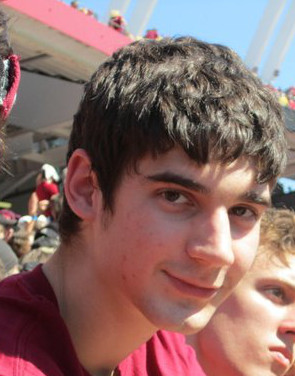 We congratulate Daniel Grier, an undergraduate double-majoring in Computer Science and Mathematics, for being awarded the prestigious National Science Foundation Graduate Research Fellowship for attending graduate school (list of winners). The 3-year fellowship covers tuition at any University and provides a stipend of $30,000/year.
We congratulate Daniel Grier, an undergraduate double-majoring in Computer Science and Mathematics, for being awarded the prestigious National Science Foundation Graduate Research Fellowship for attending graduate school (list of winners). The 3-year fellowship covers tuition at any University and provides a stipend of $30,000/year.
The NSF Graduate Research Fellowship Program (GRFP) provides Fellowships to individuals selected early in their graduate careers based on their demonstrated potential for significant achievements in science and engineering. Three years of support is provided by the program for graduate study that is in a field within NSF's mission and leads to a research-based master's or doctoral degree. The program goals are 1) to select, recognize, and financially support individuals early in their careers with the demonstrated potential to be high achieving scientists and engineers, and 2) to broaden participation in science and engineering of underrepresented groups, including women, minorities, persons with disabilities, and veterans. GRFP is a critical program in NSF's overall strategy in developing the globally-engaged workforce necessary to ensure the Nation's leadership in advancing science and engineering research and innovation. The ranks of NSF Fellows include numerous individuals who have made transformative breakthroughs in science and engineering research, become leaders in their chosen careers, and been honored as Nobel laureates. Applicants are urged to visit the NSF web page at http://www.nsf.gov/ for more information and guidance about current and emerging themes for NSF.Daniel Grier has also just been named a finalist in the Computing Research Association Outstanding Undergraduate Researcher Award.
International Scholarship Award to Study Abroad
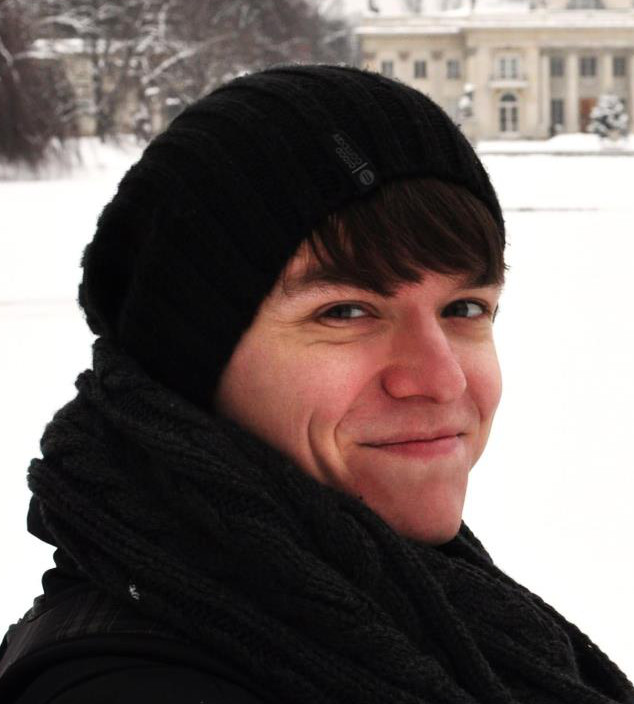 Mateusz Czarnocki, a second-year Computer Information Systems major, received $5,000 from the Benjamin A. Gilman International Scholarship program to study abroad in Poland this spring. This will be combined with two additional scholarships awarded to Matt, including the USC Knight Scholarship. With the help of financial aid, Matt, who was born in Warsaw, Poland, will be able to live and study in his home country.
“I have been waiting for any opportunity to return to my homeland and see what it is like to study as a regular student in Poland, spend time with my family, learn more about my home culture and experience daily life in Poland,” wrote Matt in his scholarship application.
Matt’s desire to reconnect with his roots first surfaced with the passing of his father in 2004. Unable to be with the majority of his family through this difficult time, Matt yearned to strengthen these family ties and explore his heritage and that of his father. He describes how his father is the inspiration for many decisions in his life, including his interest in computers.
While abroad, Matt will study marketing, computer networks, management and banking at the Warsaw School of Economics (WSE). The skills he gains abroad will support his plans to eventually move back to Poland and work in a computer networking-related career. The program is coordinated through the Council on International Educational Exchange (CIEE), which offers the largest selection of computer and business courses recognized and accepted at USC toward Matt’s CIS major. Matt is also the recipient of CIEE’s new LIFT Scholarship. The Language Intensive Focus Track award program helps fund the extended study of a single language by top university students.
According to his adviser at CIEE, Matt is not only the first CIS major from USC to participate in the program in Poland, but he is also the first CIS major from the southeast. He plans to use that to his advantage.
“When I come back from Poland, I will have something to say that no one else has said before,” wrote Matt.
When he returns to USC, Matt will organize photographic documentation of his time abroad to develop a presentation for the members of USC’s Opportunity Scholars Program (OSP). The program helps first-generation students from low-income families through their transition into college life. Matt hopes to reach out to this population and inform them of the available opportunities so they may have their own experiences abroad.
“For first-generation freshmen, like I was, who start their college career knowing that sometime in the future they would like to study somewhere other than the states, an informative session like this would be a great first step,” wrote Matt. He continues, “I could show people what they must get ready to fulfill their dreams of studying somewhere beyond the states.”
Each year, the Benjamin A. Gilman International Scholarship Program offers grants of up to $5,000 per semester for U.S. citizen undergraduate students of limited financial means to pursue academic studies abroad. For information on the Gilman program and how to apply, visit the website at www.iie.org/gilman/. For information on other scholarship and education abroad opportunities, visit the USC Study Abroad Office’s website at studyabroad.sc.edu.
Mateusz Czarnocki, a second-year Computer Information Systems major, received $5,000 from the Benjamin A. Gilman International Scholarship program to study abroad in Poland this spring. This will be combined with two additional scholarships awarded to Matt, including the USC Knight Scholarship. With the help of financial aid, Matt, who was born in Warsaw, Poland, will be able to live and study in his home country.
“I have been waiting for any opportunity to return to my homeland and see what it is like to study as a regular student in Poland, spend time with my family, learn more about my home culture and experience daily life in Poland,” wrote Matt in his scholarship application.
Matt’s desire to reconnect with his roots first surfaced with the passing of his father in 2004. Unable to be with the majority of his family through this difficult time, Matt yearned to strengthen these family ties and explore his heritage and that of his father. He describes how his father is the inspiration for many decisions in his life, including his interest in computers.
While abroad, Matt will study marketing, computer networks, management and banking at the Warsaw School of Economics (WSE). The skills he gains abroad will support his plans to eventually move back to Poland and work in a computer networking-related career. The program is coordinated through the Council on International Educational Exchange (CIEE), which offers the largest selection of computer and business courses recognized and accepted at USC toward Matt’s CIS major. Matt is also the recipient of CIEE’s new LIFT Scholarship. The Language Intensive Focus Track award program helps fund the extended study of a single language by top university students.
According to his adviser at CIEE, Matt is not only the first CIS major from USC to participate in the program in Poland, but he is also the first CIS major from the southeast. He plans to use that to his advantage.
“When I come back from Poland, I will have something to say that no one else has said before,” wrote Matt.
When he returns to USC, Matt will organize photographic documentation of his time abroad to develop a presentation for the members of USC’s Opportunity Scholars Program (OSP). The program helps first-generation students from low-income families through their transition into college life. Matt hopes to reach out to this population and inform them of the available opportunities so they may have their own experiences abroad.
“For first-generation freshmen, like I was, who start their college career knowing that sometime in the future they would like to study somewhere other than the states, an informative session like this would be a great first step,” wrote Matt. He continues, “I could show people what they must get ready to fulfill their dreams of studying somewhere beyond the states.”
Each year, the Benjamin A. Gilman International Scholarship Program offers grants of up to $5,000 per semester for U.S. citizen undergraduate students of limited financial means to pursue academic studies abroad. For information on the Gilman program and how to apply, visit the website at www.iie.org/gilman/. For information on other scholarship and education abroad opportunities, visit the USC Study Abroad Office’s website at studyabroad.sc.edu.IBM Award for Cloud Computing
Dr. Michael Huhns has received an IBM Faculty Research Award to conduct research into cloud computing and virtualization. He will be investigating mechanisms whereby cloud and virtualization users can share their cloud resources across institutions in the Southeast. The mechanisms will leverage OpenStack, OpenFlow, and other standard protocols for cloud computing. The expected outcome of the effort is that it will be easier to deploy and manage applications across integrated clouds.
Undergraduate Research Award
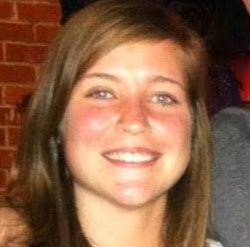 We congratulate Casey Cole for winning a Distributed Research Experiences for Undergraduates award. She is building a webapp for storing and easy retrieval of doping experiment results, visualizing trends in these results, as well as developing regular expression-based text analysis tools to automatically extract doped materials information from research papers.
We congratulate Casey Cole for winning a Distributed Research Experiences for Undergraduates award. She is building a webapp for storing and easy retrieval of doping experiment results, visualizing trends in these results, as well as developing regular expression-based text analysis tools to automatically extract doped materials information from research papers.Dr. Nelakuditi Receives Google Faculty Research Award
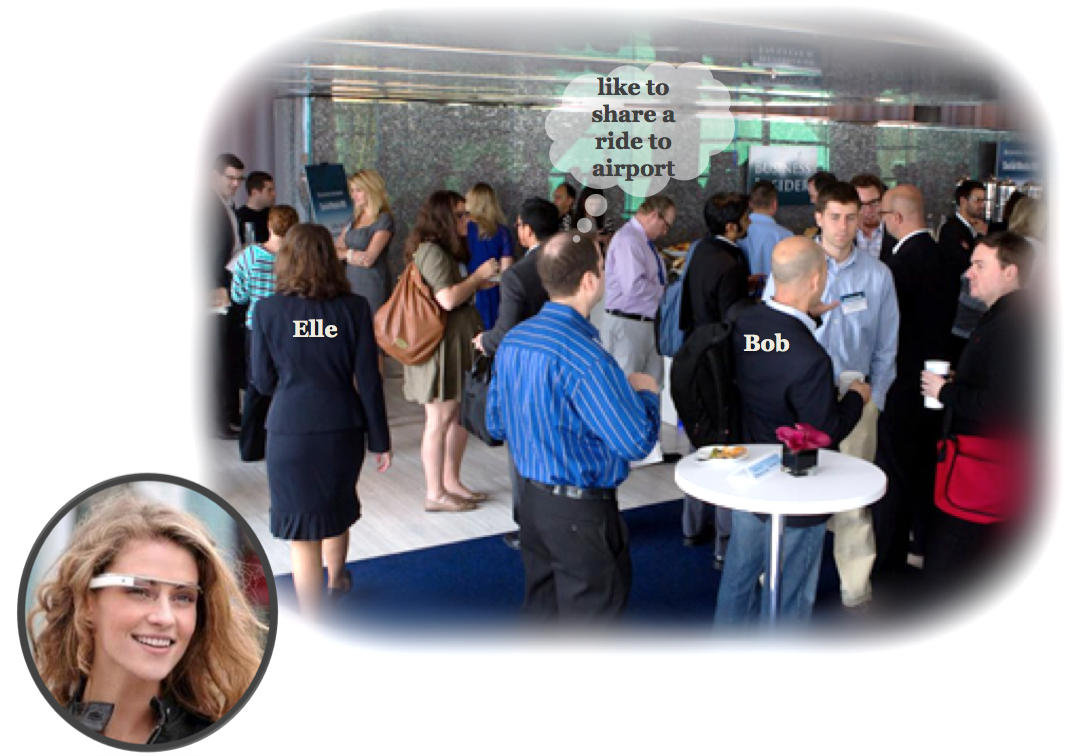 Dr. Srihari Nelakuditi, along with Dr. Romit Roy Choudhury at Duke University, is a recipient of the prestigious Google Faculty Research Award for their project titled "Google Glass meets Smartphones: Recognizing Humans without Face Recognition" which proposes to identify individuals based on their clothes and motion patterns when seen via Google Glass. This New Scientist article describes their research, and has been picked up by many media outlets and USC News. See video.
You can also listen to an interview of Dr. Nelakuditi at the IT minute podcast.
Dr. Srihari Nelakuditi, along with Dr. Romit Roy Choudhury at Duke University, is a recipient of the prestigious Google Faculty Research Award for their project titled "Google Glass meets Smartphones: Recognizing Humans without Face Recognition" which proposes to identify individuals based on their clothes and motion patterns when seen via Google Glass. This New Scientist article describes their research, and has been picked up by many media outlets and USC News. See video.
You can also listen to an interview of Dr. Nelakuditi at the IT minute podcast.
 This project explores techniques that jointly leverage Google Glass and smartphones to automatically recognize people in the visual surrounding. This enables a scenario where Alice can look at any other person around her, say Bob, and view his Google+ profile. While face recognition would be one approach to this problem, we believe that it may not be always possible to see a person’s face. Our technique is complementary to face recognition, and exploits the intuition that colors and decorations of clothes, and even human motion patterns, can together make up a “fingerprint” that helps recognize the person. This project is expected to not only facilitate human recognition, but also provide a useful primitive for human-centric augmented reality.
This project explores techniques that jointly leverage Google Glass and smartphones to automatically recognize people in the visual surrounding. This enables a scenario where Alice can look at any other person around her, say Bob, and view his Google+ profile. While face recognition would be one approach to this problem, we believe that it may not be always possible to see a person’s face. Our technique is complementary to face recognition, and exploits the intuition that colors and decorations of clothes, and even human motion patterns, can together make up a “fingerprint” that helps recognize the person. This project is expected to not only facilitate human recognition, but also provide a useful primitive for human-centric augmented reality.
Best Poster Award
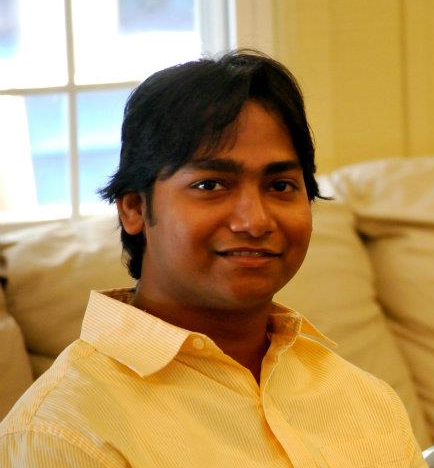
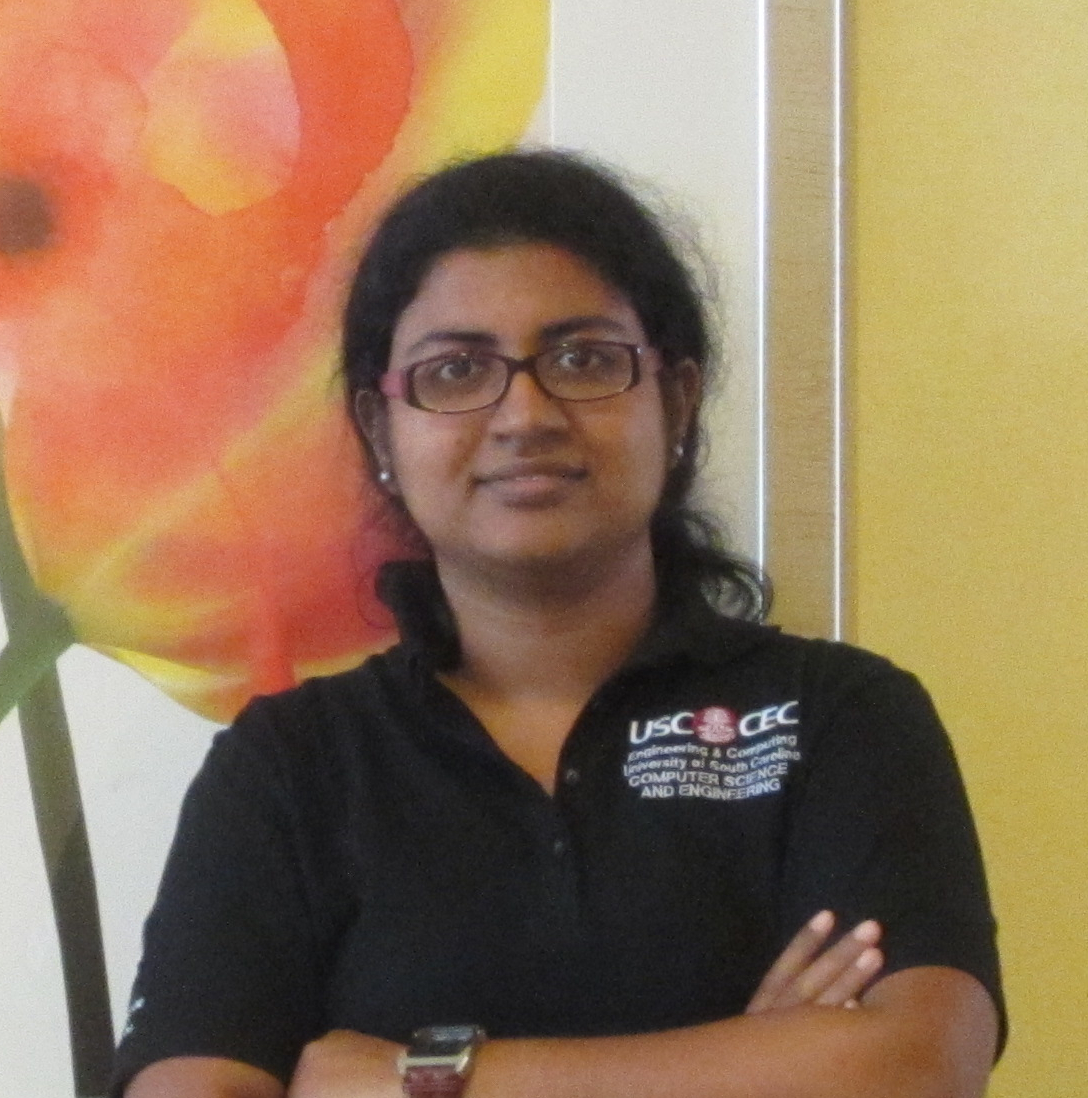 Congratulations to our graduate students Ms. Sanorita Dey and Mr. Nirupam Roy. Their poster titled "Leveraging Imperfections of Sensors for Fingerprinting Smartphones" won the Second Prize in the Poster Session of HotMobile 2013. The panel of judges for this award includes researchers from Google and Microsoft.
The winning poster:
Congratulations to our graduate students Ms. Sanorita Dey and Mr. Nirupam Roy. Their poster titled "Leveraging Imperfections of Sensors for Fingerprinting Smartphones" won the Second Prize in the Poster Session of HotMobile 2013. The panel of judges for this award includes researchers from Google and Microsoft.
The winning poster:
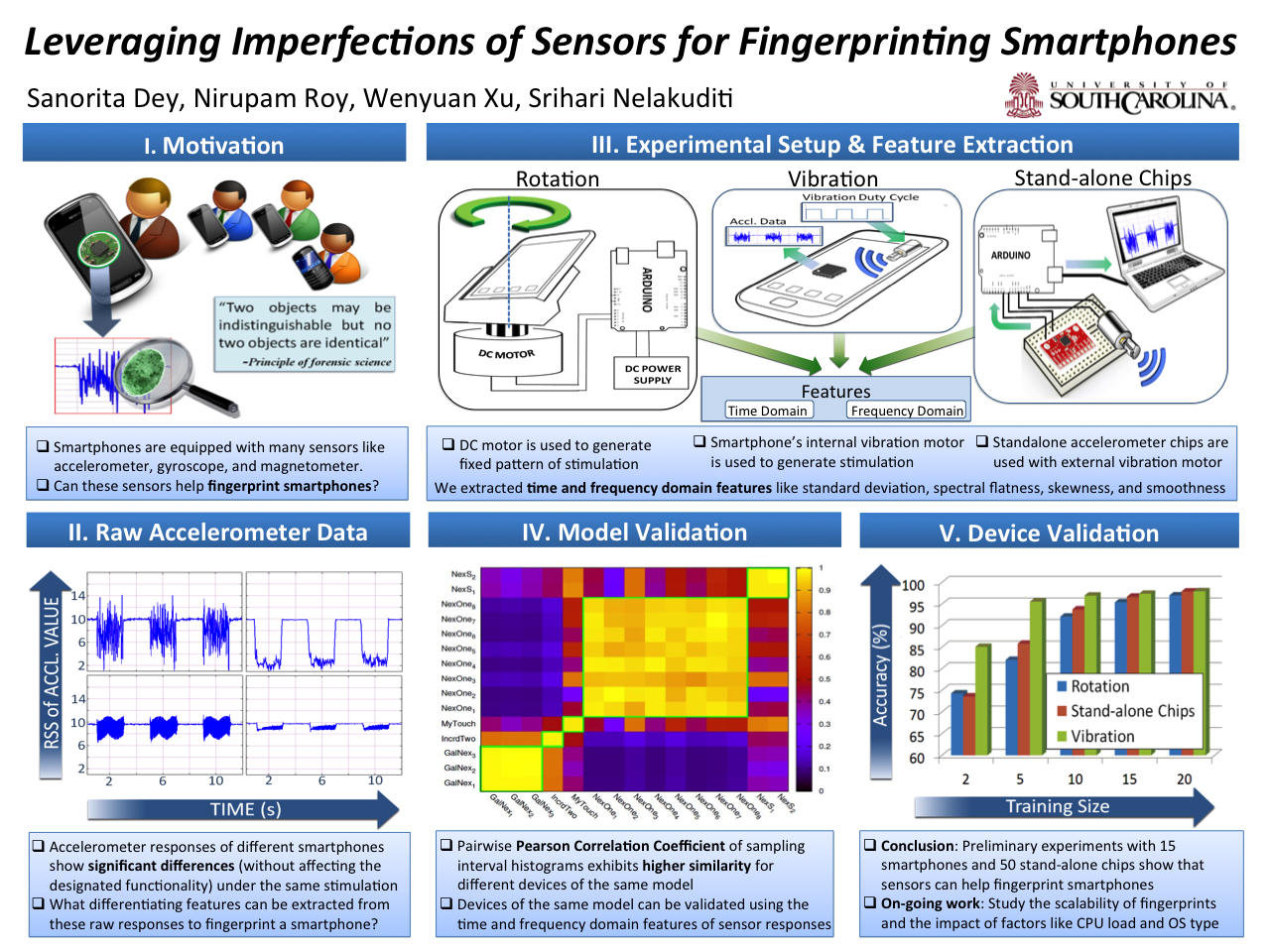
Outstanding Senior Awards
Please join me in congratulating the following winners of the CSE Annual Undergraduate Awards:
- The Award for Outstanding Senior in Computer Engineering goes to Mr. Ahmed Khawaja.
- The South Carolina Professional Engineers' Award in Computer Engineering goes to Mr. Ross Roessler.
- The Award for Outstanding Senior in Computer Science goes to Mr. Daniel Grier.
- The Award for Outstanding Senior in Computer Information Systems goes to Mr. Ryan McGraw.
As always, the competition for the awards was very tight and there were many deserving candidates.
Dr. Alekseyev Receives NSF Career Award
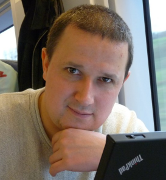 Dr. Alekseyev has received the National Science Foundation's CAREER award. The Faculty Early Career Development (CAREER) Program is NSF's most prestigious award in support of the early career-development activities of junior faculty.
The award supports his research on developing software and algorithms to aid in the reconstruction of ancestral genomes and the construction of an evolutionary history of genomes.
The full title of the award is CAREER: PRUGC---Phylogenetic Reconstructions with Unequal Gene Contents. The project abstract follows:
Dr. Alekseyev has received the National Science Foundation's CAREER award. The Faculty Early Career Development (CAREER) Program is NSF's most prestigious award in support of the early career-development activities of junior faculty.
The award supports his research on developing software and algorithms to aid in the reconstruction of ancestral genomes and the construction of an evolutionary history of genomes.
The full title of the award is CAREER: PRUGC---Phylogenetic Reconstructions with Unequal Gene Contents. The project abstract follows:
The proposed project "PRUGC—Phylogenetic Reconstructions with Unequal Gene Contents" addresses the problem of reconstruction of ancestral genomes and evolutionary history of genomes that may deviate in gene content, resulting from genome rearrangements as well as gene duplications and deletions evolutionary events. It will close the gap between steadily growing number of sequenced genomes and incapability of existing phylogenetic reconstruction tools to process diverse varieties of genomes. Similarly to the previous phylogenetic reconstruction tool MGRA developed by the PI, the new PRUGC software will employ the framework of multiple breakpoint graphs that will be extended to address new algorithmic challenges arising from genomes having unequal gene contents. As some of these challenges may be hard and have no computationally feasible solutions, instead of focusing on a fixed evolutionary model and attempting to fit biological problems into it, the PI will let the model be flexible and problem-driven. In the course of PRUGC development, the PI plans to address the following particularly important biological problems (listed in the order of growing complexity): the primate-rodent-carnivore split controversy in mammalian evolution (featuring relatively small number of duplications); phylogenetic analysis of a diverse variety of yeast genomes including genomes that undergone whole genome duplications; and evolutionary problems in plant evolution rich in segmental duplications. Solutions to these problems will help to better understand the mechanisms behind chromosome evolution across variety of genomes. The reconstructed ancestral genomes will provide insights to functional significance of particular gene orders, help to rigorously estimate the rate of genome rearrangements and gene duplications/deletions in different organisms, and allow testing hypotheses about their mechanisms and influence on shaping genomic architectures. It is important to emphasize that the PRUGC software will have a wide range of applications, not limited to the aforementioned problems. Other immediate applications will arrive from a number of the PI's collaborative projects, such as analysis of rearrangements in malaria mosquito genomes (a joint project with Dr. Igor Sharakhov from Virginia Tech University). The PRUGC software will also be helpful in various phylogenomic studies within projects like "Tree of Life", "Genome 10K", and "i5k". It will be released as both a standalone open-source tool and an online web-server application readily accessible for use by biologists. The project will support research activities in the PI's research lab. In particular, it will help to prepare a new generation of researchers in bioinformatics by providing the opportunities to have hands-on experiences in both computer science and biology. One undergraduate student and two Ph.D. students will be recruited with the support of this project, and the PI will mentor these students and prepare them for building their careers in academia or industry. The PI will make every effort to help the students gain first-hand experience of biology, including short-term visits to our local, national, and international collaborators. Such experience will also help the students to develop and enhance their ability to communicate with researchers in other areas, an important skill in interdisciplinary research. The project will also offer an excellent opportunity for computer science students to learn about experimental and theoretical research in the interdisciplinary area of bioinformatics. Detailed explanation of the whole process of multiple genomes comparison will perfectly fit into a timeframe of a bioinformatics course. The PI plans to lecture this material within the bioinformatics course CSCE 555 offered for undergraduate and graduate students at the University of South Carolina. As a member of the Bioinformatics Education Alliance developing "Bioinformatics for Biologists" (B4B) textbook, the PI coordinated with the editors preparation of a new chapter module and web-based educational materials for the next edition of B4B that will expand the current chapter on genome rearrangements and illustrate their applications with a number of biological problems within the PRUGC project.The NSF CAREER program recognizes and supports the early career-development activities of those teacher-scholars who are most likely to become the academic leaders of the 21st century. CAREER awardees are selected on the basis of creative career-development plans that effectively integrate research and education within the context of the mission of their institution and department.
Supporting Computer Science in South Carolina
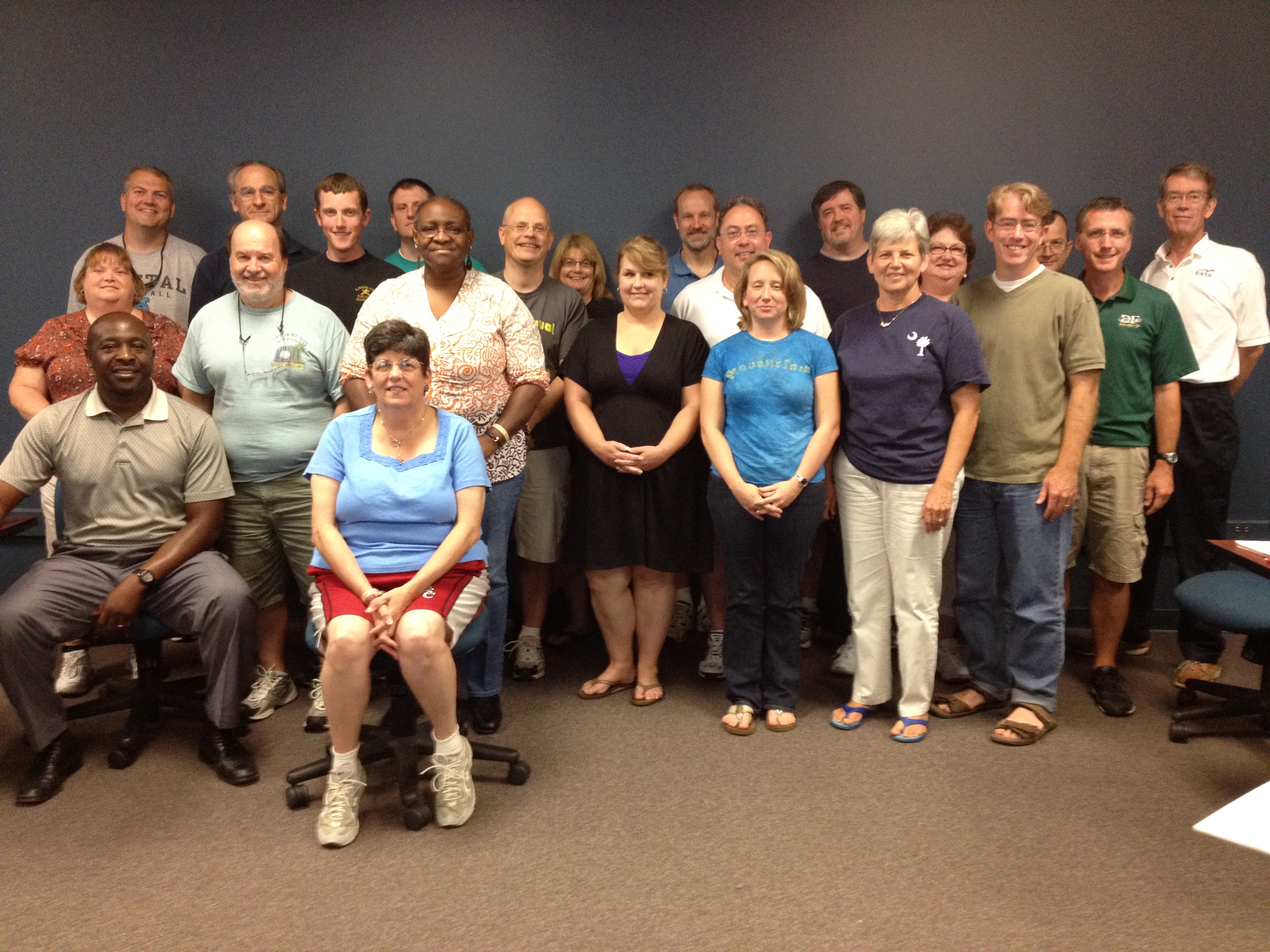 Dr. Buell has been awarded an NSF grant to help students across South Carolina learn about Computer Science and the many opportunities the field offers. As part of this grant, the Expanding Computing Education Pathways Alliance and the University of South Carolina (Columbia) will collaborate to build state-based infrastructures to improve and support computer science in South Carolina.
This will include promoting ECEP summer camp seed funding opportunities and train-the-trainers workshops; seeking opportunities to draw upon the Experts Bureau and NCWIT resources to inform policy-makers and other education leaders; and furthering the development and broadening of computing education pathways in South Carolina.
Dr. Buell has been awarded an NSF grant to help students across South Carolina learn about Computer Science and the many opportunities the field offers. As part of this grant, the Expanding Computing Education Pathways Alliance and the University of South Carolina (Columbia) will collaborate to build state-based infrastructures to improve and support computer science in South Carolina.
This will include promoting ECEP summer camp seed funding opportunities and train-the-trainers workshops; seeking opportunities to draw upon the Experts Bureau and NCWIT resources to inform policy-makers and other education leaders; and furthering the development and broadening of computing education pathways in South Carolina.
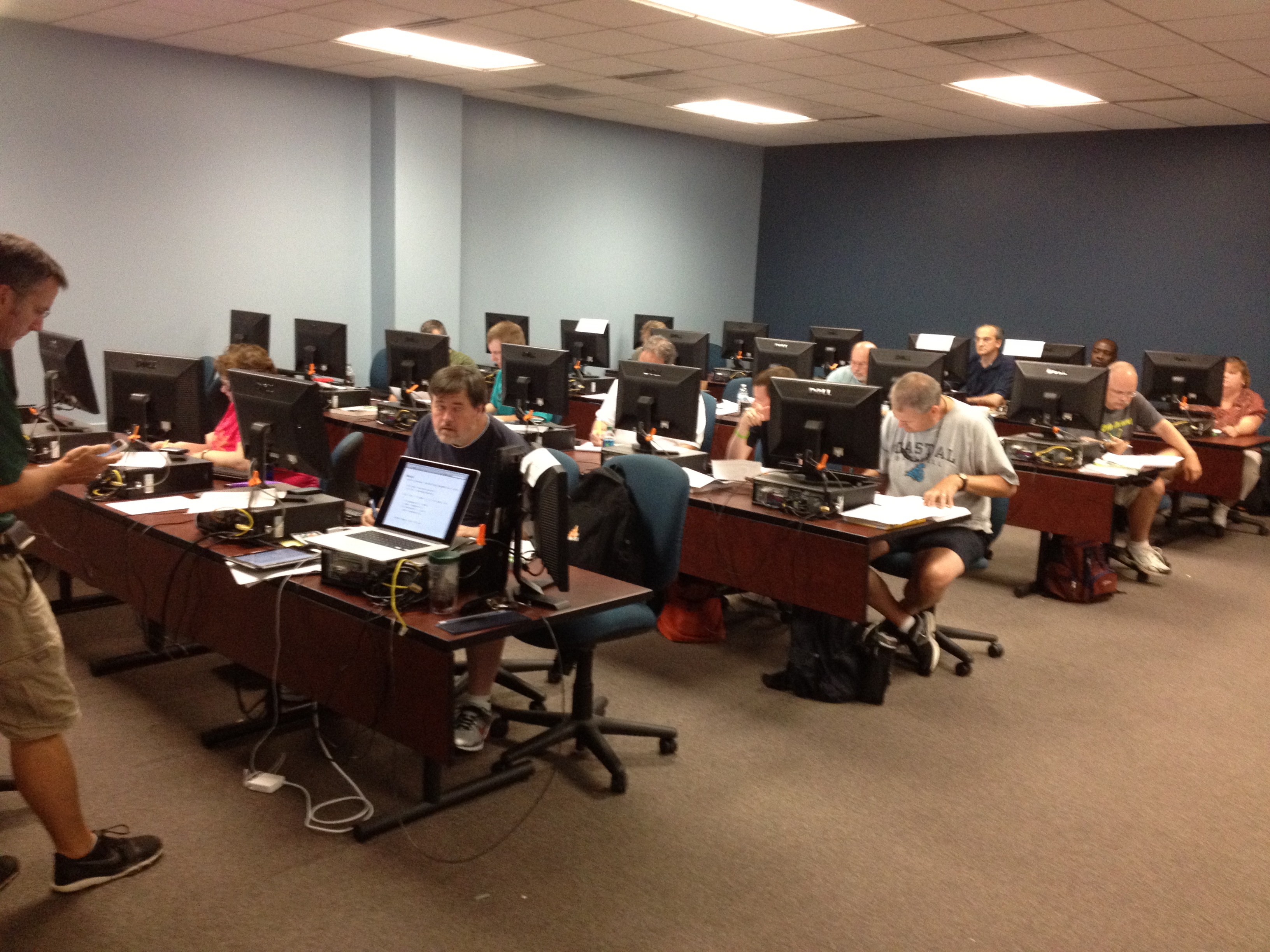
Hood and DeBruin win Magellan Scholarship
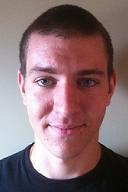
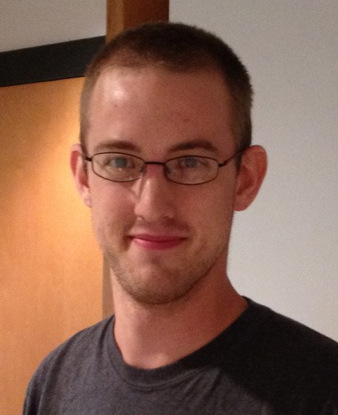 Two of our undergraduate students received Magellan Scholar awards. Logan Hood received an award for his project on "Affordable Medical Ultrasound Training Simulator" and Garret DeBruin for his project titled "Classification and Detection of Proteotypic Peptides Through The Use of Hidden Markov Models and Neural Networks." Congratulations to both of them!
Garret DeBruin's project abstract:
Two of our undergraduate students received Magellan Scholar awards. Logan Hood received an award for his project on "Affordable Medical Ultrasound Training Simulator" and Garret DeBruin for his project titled "Classification and Detection of Proteotypic Peptides Through The Use of Hidden Markov Models and Neural Networks." Congratulations to both of them!
Garret DeBruin's project abstract:
Classification and Detection of Proteotypic Peptides Through The Use of Hidden Markov Models and Neural Networks In traditional peptide sequencing an unknown peptide’s MSMS spectrum is used as a query to a database. This query yields a set of peptides with spectra similar to the observed spectrum. A more difficult problem is De Novo peptide sequencing, which does not depend on a database of known peptides. De Novo peptide sequencing has the problem of considering all possible peptides consistent with the observed spectrum, and ranking them according to some scoring function. Proteotypic peptides are peptides that are easily fragmented by collision induced dissociation and are easily detected by tandem mass spectrometers. In contrast, nonproteotypic peptides are unlikely to be detected. Under the proposed approach, it would be possible to improve de novo sequencing results by discounting nonproeotypic peptides since they are unlikely to be detected even though they are consistent with the observed spectrum. This would significantly improve the accuracy of the sequencing.
JJ Shepherd at TEDxColumbiaSC
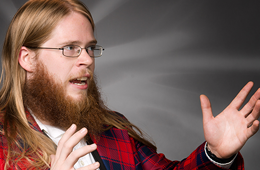 Our very own JJ Shepherd will be giving a talk at TEDxColumbiaSC 2013, in January. The talk is titled "How video games should be taken seriously as a research field, a rehabilitation aid and an art form". In this USC News article JJ says:
Our very own JJ Shepherd will be giving a talk at TEDxColumbiaSC 2013, in January. The talk is titled "How video games should be taken seriously as a research field, a rehabilitation aid and an art form". In this USC News article JJ says:
I want to give this talk to spread the message that games are not just a ‘kid’s toy,’ but are a unique medium that combines art and science into one artifact. These artifacts can not only entertain, but also teach us, train us and evoke new ideas that no other medium has ever been able to do.
